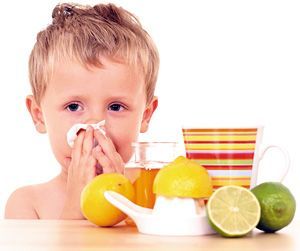Some doctors thrive in a personality-based clinic and have a loyal following no matter what services or equipment they offer, but for most chiropractic offices who are trying to grow and expand, new equipment purchases help us stay relevant and continue to service our client base in the best, most up-to-date manner possible. So, regarding equipment purchasing: should you lease, get a bank loan, or pay cash?
Cold and Flu Defense
Swine flu was a bust. The hype, the worldwide craze, the unnecessary vaccine, all fizzled out. Fewer people died of the swine flu in the 2009-2010 season than an average flu season. But let's turn our eyes to the future, for there will be a flu this winter season; perhaps an average one, perhaps a true pandemic. No one knows for sure, but we must do everything to prepare our patients, boost their immune system and have effective natural treatments at the ready.
The influenza virus starts in November, but doesn't peak in activity until February and usually completes in March. Usually, 5 percent to 20 percent of our population gets the flu; many mild, some so severe that hospitalization is required. On average, 36,000 people die from the flu annually in the U.S., the majority of whom are elderly, compared to 250,000 to 500,000 people worldwide. Again, our role is to boost the immune system for the winter months.
We are all familiar with the standard flu symptoms of fever, headache, fatigue, cough, sore throat, rhinitis, and myalgia. Children can also experience nausea, vomiting, otitis media and diarrhea. The illness lasts up to a week, with cough and malaise lasting up to two weeks. Younger children (6 percent to 20 percent) can experience febrile seizures concurrently.

Preventing and treating the flu is very effectively done using natural medicines, including vitamins, minerals, botanicals and homeopathics. A combination of some or all of the following will boost patients' immunity for the entire winter season.
Vitamin C
A study of 715 people1 showed that flu symptoms were decreased by 85 percent when people took 6 grams of vitamin C as a one-time loading dose, then continuing with 1 gram three times a day, compared with people taking the 3 grams daily. An additional study showed that vitamin C is 10 times more effective in its antiviral properties when taken with iron. Ten to 20 mg of iron can be given on a daily basis and is also a good mineral to balance the stool-loosening effects of vitamin C.2
Vitamin D
Vitamin D has exploded in research and popularity over the past few years. Most of us are familiar with its immune-boosting properties; however, new research suggests dosing protocols should be watched. Testing is essential to evaluate; order 25(OH)D3 levels and serum calcium. Adults can safely take 10,000 IU daily, children 5,000 IU daily, and children under four 2,000 IU daily.
Elderberry
Elderberry (Sambucus) was researched in a group of 60 people and found to alleviate symptoms four days earlier compared with controls.3 Elderberry helps to balance inflammatory cytokines and interleukins.
| Fear the Flu - or the Flu Vaccine? Flu vaccines are available on anannual basis, but concern should be taken for the following reasons:
|
Panax quinquefolium (American ginseng) was studied in a large group of 323 patients as a preventive natural medicine. The group that took Panax had 30 percent less colds compared with placebo, and number of sick days were 11 compared with 16 in the non-treatment group.4
Oscillococciunum
Last, but not leas,t is the well-known oscillococcinum, a homeopathic flu treatment that is created new every year. A Cochrane review of all oscillococcinum studies showed that it reduces the length of illness compared with placebo.5
Flu and colds will affect your patients every year. While most are an inconvenience, in some patients they can be deadly serious. Immune boosting is essential for everyone to ensure that when patients do catch something, it is a short and mild inconvenience.
References
- Gorton HC, Jarvis K. The effectiveness of vitamin C in preventing and relieving the symptoms of virus-induced respiratory infections. J Manipulative Physiol Ther, 1999 Oct;22(8):530-3.
- Furuya A, Uozaki M, Yamasaki H, et al. Antiviral effects of ascorbic and dehydroascorbic acids in vitro. Int J Mol Med, 2008 Oct;22(4):541-5.
- Zakay-Rones Z, Thom E, Wollan T, et al. Randomized study of the efficacy and safety of oral elderberry extract in the treatment of influenza A and B virus infections. J Int Med Res, 2004 Mar-Apr;32(2):132-40.
- Predy GN, Goel V, Lovlin R, et al. Efficacy of an extract of North American ginseng containing poly-furanosyl-pyra- nosyl-saccharides for preventing upper respiratory tract infections: a randomized controlled trial. CMAJ, 2005 Oct 25;173(9):1043-8.
- Vickers AJ, Smith C. Homoeopathic oscillococcinum for preventing and treating influenza and influenza-like syndromes. Cochrane Database Syst Rev, 2000;(2):CD001957.


